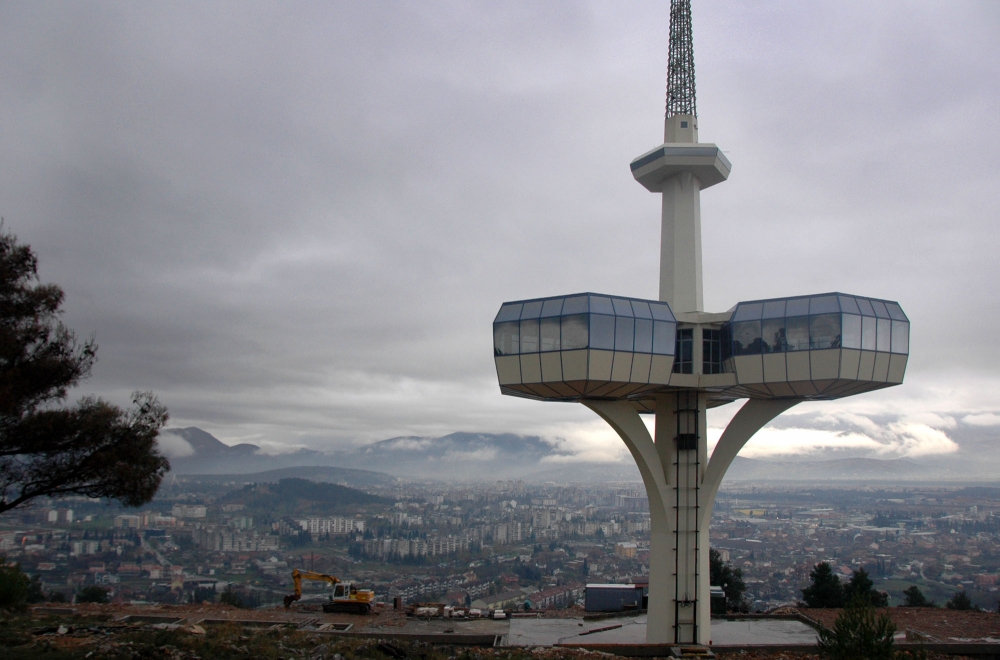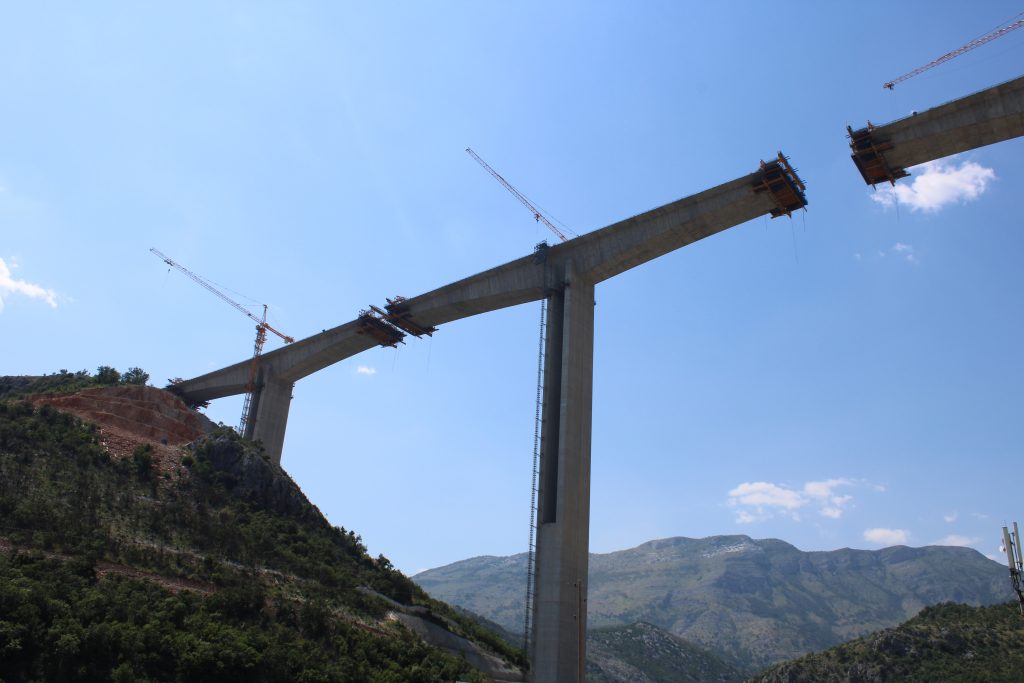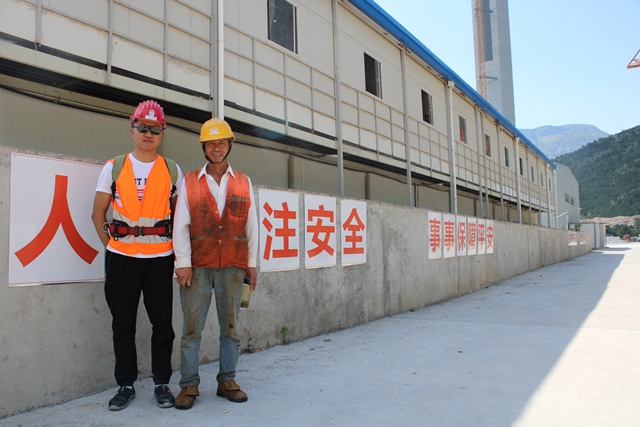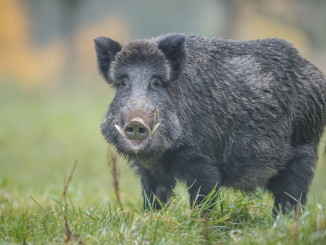Montenegro is investing heavily in a new highway to connect rural inlands with the coastal port city of Bar. But will farmers actually benefit from the hugely expensive project?

from Hans Wetzels in Podgorica
The Montenegrin capital Podgorica is a small but hidden gem far away in the European outskirts. The city is surrounded by impressive mountain ranges and idyllic azure blue rivers. Tiny Montenegro itself only gained independence in 2006 and has a mere 600.000 inhabitants – half of which live in Podgorica. It has no own currency (payments are done in euro’s) and is a notorious hotbed for cigarette smuggling and drug trafficking. As everywhere in the Western Balkans, the official economy relies heavily on agriculture.
Montenegro aspires to join the European Union (EU) by 2025. Therefor the government in Podgorica is eagerly looking for ways to make the agricultural sector more competitive. But Montenegro remains the last European country without a single stretch of highway, isolating farms up north from consumers in Podgorica. That is about to change once a high-profile highway connecting the coastal city of Bar with Podgorica and the Serbian hinterland, is completed.
The project is hugely expensive: it will cost the Montenegrin government 809 million euro’s. All of that money is borrowed from China’s Exim Bank, while the highway is being built by the China Road and Bridge Corporation (CRBC). According to the government, the new road should connect farmers not only to Podgorica, but also to the emerging tourist industry at the coast – where demand for high-quality local produce is increasing.
“This project will increase added value in the areas of tourism, farming and the wood industry,” Aleksandar Drljević explains. “The construction of this highway will highly affect the development of Montenegrin agriculture, in particular the mountainous north. Bearing in mind that northern farms make up the majority of agricultural holdings, a better connection to the south will provide them an opportunity for placement of their goods. Especially when demand might increase through a growing tourism sector.”
EU-accession
During a hot summer day in 2019, politicians, journalists and academia gather for a meeting on EU-accession in the fancy CentreVille hotel in Podgorica. Drljević is the chief Montenegrin negotiator. Accession talks have been underway for a little over seven years now, he explains. The agricultural sector provides for 6,9 percent of Montenegrin GDP, employment through agriculture amounts up to almost thirty percent. Thanks to the gradual implementation of EU-standards, farmers in Montenegro already benefit from a closer connection with the rest of Europe.
“Thanks to the preliminary implementation of European standards safer products are now available on the market, water supply and wastewater treatment systems have improved, and many citizens are developing their own businesses with EU-support,” Drljević says. “It is especially important that farm products are now embedded in a much larger market than only the Montenegrin.”
The Estonian EU-ambassador to Montenegro Aivo Orav proves a bit more skeptical about the accession talks. The China-funded highway especially remains a cause for concern. “Montenegro is using European structural finds very well. The ministry of Agriculture is very active distributing EPA-funds and I have seen positive results travelling around to visit those small enterprises benefiting from EU-assistance,” he explains. “At the same time the country is importing many agricultural products from neighbouring countries, while there is much potential to do great things locally.
What the effect of this big highway-project will be on that is difficult to assess. It might make it easier to organize transport for agriculture products from the north, but it also increases the possibility for international imports. The EU-mission is following this carefully since the project puts huge pressure on the state budget.”
Chinese workers

About twenty minutes outside Podgorica CRBC is building a gigantic bridge, pictured above. Two pillars tower up into the sky from a small river bedding. Two-hundred Chinese workers live in a camp of barracks under the building site. According to estimates by the World Bank, the project seriously challenges fiscal sustainability of Montenegro and in the latest European Commission Progress Report, the rapidly rising public debt, high fiscal deficits and unemployment rates are mentioned as issues threatening accession talks.
Dejan Milovac is a researcher for the EU-funded NGO MANS in Podgorica. He calls into question whether the highway will even help the farming sector: “Almost a billion euro’s is a lot of money for a small country like Montenegro. The contract with Exim Bank states that if the government is unable to pay back the loan, China can seize Montenegrin assets. Don’t get me wrong, Montenegro does actually need better infrastructure. But the importing lobby is so strong that regardless of what you could produce on a farm in the north, the market will remain heavily dependent on food imports from Serbia and Austria. It just doesn’t pay to be a farmer in Montenegro. That’s something a new highway will not change.”

FAO
The focus of the UN Food and Agriculture Organisation (FAO) in Montenegro is on bringing agriculture in line with European regulatory standards and ensuring small farmers can compete on the international market in anticipation of the country eventually entering the EU.
Better infrastructure will only improve conditions for farmers: even if financing comes from Chinese instead of European banks, Drljević sweeps aside the criticism.
“Let me emphasize that our goal is not mere EU membership, but an improvement in the quality of life of our citizens,” the negotiator underlines. “This is something we’ll achieve by implementing comprehensive, fundamental reforms. The Montenegrin government believes this capital highway project will improve economic development, enable the use of our agricultural potential and contribute to better connectivity between Montenegro and the rest of Europe.
More investments in the modernization of agricultural holdings will then grow the competitiveness of Montenegrin agriculture. Despite the fact that foreign competition will also be higher, better connection to European markets will open up a lot of market potential and increase and living standards in Montenegro without a doubt.”
More from Hans Wetzels
Part 2 EU-Mercosur Trade Deal | A Road to Nowhere for Farmers?





